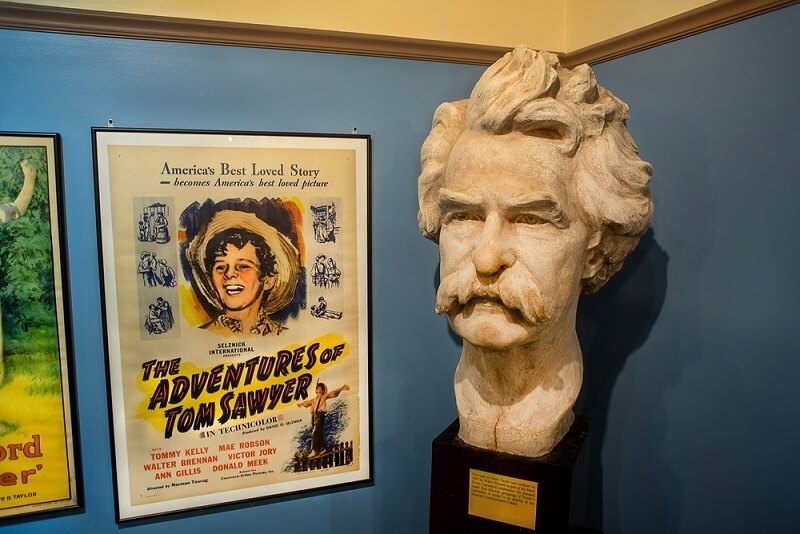
Mark Twain has been no one so iconic in the history of American literature. Twain is an established author, and his works are memorable; wit and satire mixed with keen observations on human nature abound. Samuel Langhorne Clemens, born November 30, 1835, was a multi-talented American of great success: national usefulness, literary genius, and creative power. This examines the impact of his experiences and literature on his stories to make The Life and Legacy of Mark Twain—America’s Greatest Humorist. Biography of Mark Twain online, the famous author. He was known for his well-known works, The Adventures of Huckleberry Finn and The Adventures of Tom Sawyer, which revolutionized by blending humor and profound social commentary. He pioneered American literature, neither literally nor figuratively, owing to his regional dialects, satire, and realism as a writer. As well as his novels, his wit is most evident in Mark Twain's quotes, some of which are still used today. His reach is not only in literature; his criticism of society, politics, and human nature still has its ring. A part of the blog is about Mark Twain's biography and how this man behind a legend was a genius in storytelling and bred an influence in American storytelling.
Mark Twain started on November 30th, 1835, in Florida, Missouri. As a young man growing up in the small town of Hannibal, Missouri, on the banks of the Mississippi, Samuel Clemens was shaped by the lively scene and the personalities he found there. These would later be the contexts for many of his stories.
There were many turns in Twain’s career before he became a celebrated author. He also tried mining in the Nevada silver rush when he worked as a typesetter, riverboat pilot, and even as a miner of sorts. While a journalist, he adopted the pen name “Mark Twain,” a riverboat term the latter meaning “two fathoms deep,” or safe water for navigation.
The publication of The Celebrated Jumping Frog of Calaveras County in 1865 demonstrates Twain’s prowess for this form of humor and storytelling, which proved to be something that would make him a big hit. If this is the point at which his career catches fire, he soon becomes one of his time's most beloved and influential writers.
Many don’t know that Mark Twain’s legacy goes far beyond his humor, proving it’s not all bad. He was a keen observer of society, and his works addressed issues such as racism, inequality, and, basically, humankind. For example, Adventures of Huckleberry Finn is a story of adventure and a devastating critique of slavery and racism. It is regarded as a masterpiece of moral depth and strong narrative, although it was not well received as a controversial novel.
His skill of taking on serious topics with a touch of humor and irony made his work attractive and practical. On his platform, he called upon society and challenged injustice, writing a long legacy that continues to breathe into writers and activists alike.
Must Read: Modern Authors Redefining Literature in the 21st Century

Mark Twain’s bibliography is a treasure trove of literary gems. Here are some of his most famous works:
These works entertain and offer profound insights into human nature and society, cementing Twain’s place in literary history.
Mark Twain is a humorous, satirical, and authentic writer. He also had the knack of capturing the vernacular speech of his characters so that they became believable. He used regional dialects, primarily in Huckleberry Finn, that were groundbreaking and enhanced his narratives.
Twain’s humor was often used as a vehicle for social critique. He employed irony and exaggeration to depict the absurdities of society in a way that would make his readers happy and make them think. His writing was relatively abstract but laid out so that anyone could understand it, casual readers and literary scholars alike.
Mark Twain’s novels are as memorable as the quotes he provided. But Twain’s words are still sharp, sharp, keen, keen, and caustic. These are cited as some of his most famous quotes:
These quotes aptly capture Twain’s wisdom, humor, and ability to squeeze complex ideas down with simplicity into an observation that made sense.
It is analepsis, but Kim has a good reason for it: his immeasurable influence on literature. For his work, he is usually seen as having shaped the American literary voice, learning from Europe and forging something specifically American. His use of colloquial language and regional settings helped prepare later writers to write in their own cultural and linguistic heritage.
Yet Twain's works have had a remarkable influence on American letters, from Ernest Hemingway, who famously pronounced Huckleberry Finn the basis of all modern American literature, to today’s writers, who have yet to find a single voice to deplete Twain of the rich source of his themes and method. He defined literary satire and set a precedent that literary writers, even today, have followed.
Also Read: The Writing Style of Ernest Hemingway and His Greatest Works
With his life and legacy, Mark Twain has testified to the power of storytelling and the enduring effects of humor and wisdom. His life story shows a man endowed with resilience and science, and his famous works still enthuse readers with inspiring stories that never get old. Once Twain grasped a story, he revolutionized American literature and became a source of inspiration and reflection through his writings. His words usually helped to mark his writing style; authenticity and wit are the story.
As we observe Mark Twain’s legacy, we must note the importance of laughter, critical thinking, and seeking justice. He was a great writer whose influence on literature and society tended to bring to mind excellent writing that entertains and drives us to understand. Mark Twain's wit and wisdom will forever guide the American literature landscape and will forever keep him as one of the greatest humorists and storytellers of all time.
This content was created by AI